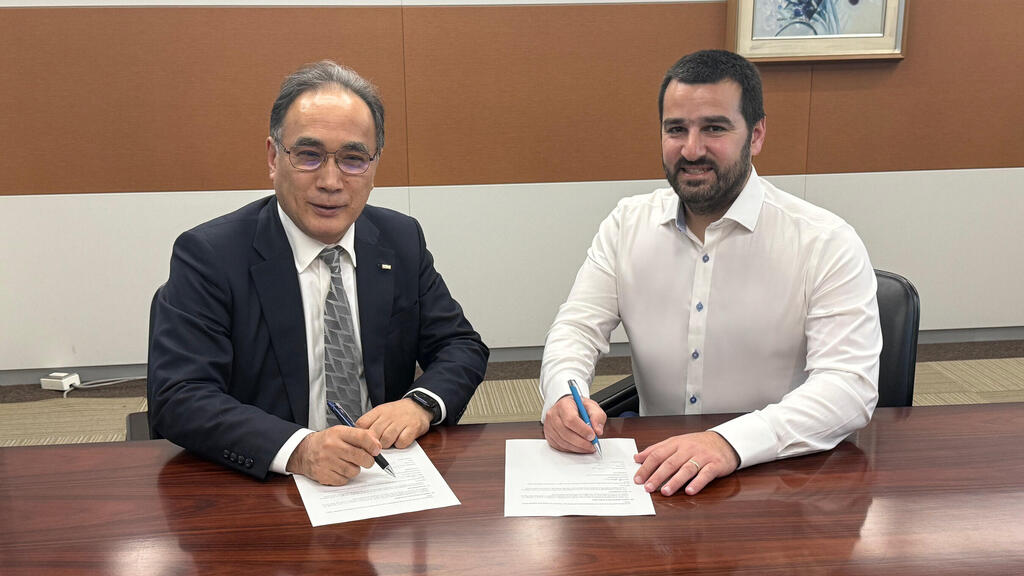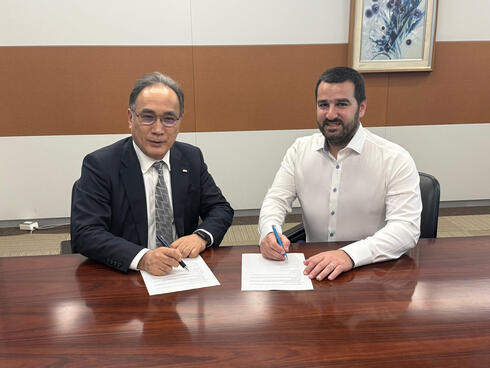
KDDI and Israel’s DriveNets sign strategic deal to modernize telecom backbone
Partnership to support Japanese giants' shift to open network architecture amid AI-driven data surge.
KDDI Corporation, one of Japan’s largest telecommunications providers, has signed a strategic partnership agreement with Israeli network software company DriveNets to accelerate the deployment of open network architecture across its national infrastructure.
The agreement—financial terms of which were not disclosed but are expected to be valued in the hundreds of millions of dollars—is focused on the adoption of “disaggregated routers”—a model that separates hardware from software to enable more scalable and cost-efficient networks. The partnership will begin with the deployment of DriveNets’ Network Cloud software in KDDI’s backbone core routers at four key locations. Commercial operations are targeted for launch by the end of 2025.
The announcement marks a significant milestone in KDDI’s multi-year effort to adopt open and scalable network systems in response to surging data traffic. The company cited the rapid spread of artificial intelligence technologies as a key factor driving the need for more adaptable and efficient network infrastructure. Open architecture, it said, allows for faster feature integration and improved network scalability.
Since 2020, KDDI has pursued the development of Cluster-Based Distributed Disaggregated Backbone Routers (DDBR) through its work in the Telecom Infra Project. These systems are designed to eliminate traditional hardware constraints and enable flexible capacity expansion. By June 2023, KDDI had completed the commercial deployment of standalone DDBRs as peering routers at its internet gateway. In February 2025, the company completed technical validation of DDBR clusters for use as core routers.
The routers deployed in 2023 were also based on DriveNets’ software, which KDDI credited with contributing to network operational stability. The new partnership builds on that success and aims to further improve router management and reduce capital and operational costs for large-scale deployments.
DriveNets was founded by Ido Susan (CEO) and Hillel Kobrinsky (chief strategy officer). Susan previously founded Intucell, which was acquired by Cisco in 2013 for $475 million after raising just $6 million. DriveNets currently employs 450 people and is in the process of hiring 100 more. To date, it has raised $587 million, with its most recent funding round in 2022 valuing the company at over $2 billion. Its investors include D2 Investments, Bessemer Venture Partners, Pitango, D1 Capital, Atreides Management, and Harel Investments.
Related articles:
“We are honored to become a strategic partner of KDDI, one of the world's leading telecommunications carriers,” said Ido Susan, CEO of DriveNets. “Together with KDDI, we will promote openness, disaggregation, and innovation across the entire network - from the core network to the edge and aggregation layers. By streamlining network operations and introducing automation and generative AI tools, we aim to help KDDI enhance the efficiency of its network and build a resilient architecture that can flexibly meet future demands.”
The KDDI agreement follows a series of high-profile global wins for DriveNets. In 2020, AT&T—the world’s largest telecom company—announced it would base its network core on DriveNets’ Network Cloud solution, as part of its transition to a flexible, distributed architecture. In March 2024, Comcast—ranked as the world’s third-largest communications provider—also adopted DriveNets’ platform as part of its "Project Janus." That initiative includes AI-based features, real-time telemetry, and autonomous monitoring to enhance streaming quality and reduce operational costs.
